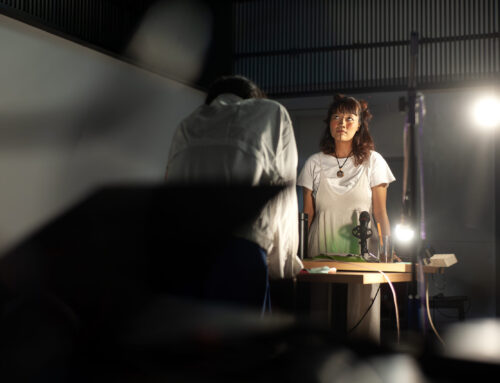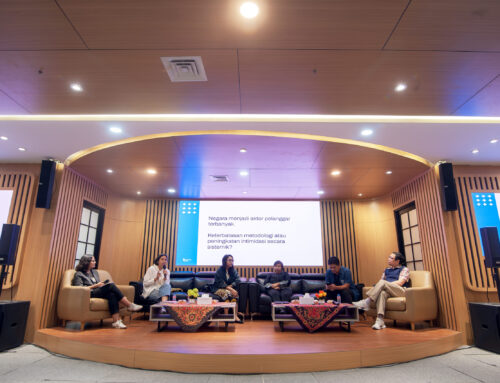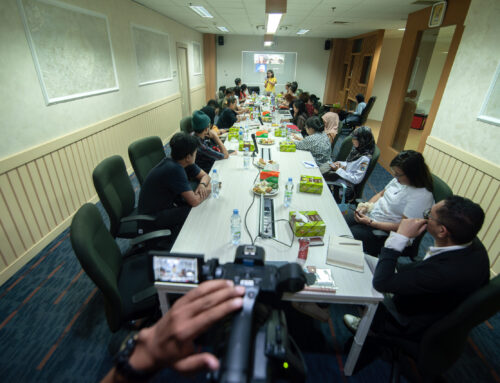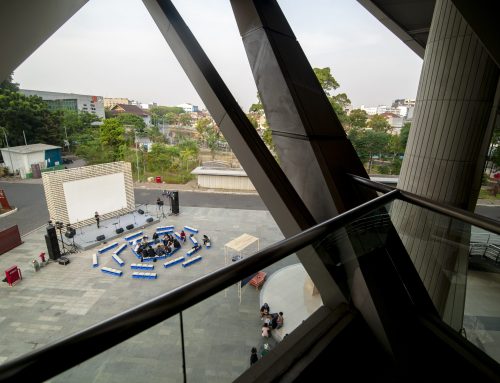The 7th Women Playwrights International Conference
Indonesia, November 2006.
Dear participants and distinguished guests,
Welcome to Jakarta and Indonesia! Jakarta Arts Council is honoured to have you here for this exciting event. It is a rare occasion to have cultures from the south, north, east and west represented here and now by talented people like your good selves. The gathering of all of you from different countries, cities and cultures reminds me of what Prof. El Saadawi, our distinguished guest, once suggested in one of her many lectures, that we all live in one world, not three worlds!
We share the excitement of the organising committee in expecting to benefit from your lively speeches, workshops, and presentations.
The theme of this conference cannot be more appropriate for one being held in Indonesia. As you will see and experience during your stay here, including your few days in Bali, Indonesia is a country of diverse traditions and cultures. We have been experiencing both the blessings and tensions of the diversity. We have a long history of struggle to maintain and enlarge cultural liberty in every period of our history, including the very last and on-going year, vis-à-vis pressure from different sides—left, right, above, and below. Jakarta Arts Council has always been involved in efforts to defend and enlarge the space for liberty of artistic and cultural expression. For us living within this diversity called Indonesia, it is obvious that cultural liberty is something that we cannot do without because it is always within the nature of our nationhood. The consensus that we call Indonesia is based on this very fact of recognised diversity. This consensus can only stand if cultural liberty is securely granted to all. Any inhibition imposed on cultural liberty would have consequences against the very reason of our living and growing together.
However, Indonesians, like many other peoples, are having difficult struggles to break a male’s world that is reducing women into spectacles for men. This is taking place at both political and artistic levels, where, for example, many talented women writers are defined by their bodies instead of their works, changing them into spectacles instead of readings. In the last decade Indonesia has seen the re-emergence of outstanding women in literature, theatre, film-making, fine arts and other arts. They have contributed tremendously to our appreciation of diversity, to breaking ups of taboos, and to breakthroughs in styles, methods and perspectives. Attempts to make them a spectacle based on their sex have completely failed. They remain more than just spectacle for the opposite sex, they remain resiliently simply our best cultural producers, because of their true artistic and intellectual contribution. They demand to be read as enlightenment, not watched as entertainment.
The experience of women has been a major part of our experience of cultural diversity and liberty. For worse or better, the life stories and bodies of Indonesian women have been the visible locus of both cultural diversity and battles for liberty. Liberty of women is therefore a major part, if not the core, of cultural liberty. And on this precept of liberty, arts stand.
We must also be aware of forces that are trying to reduce the world into commodities, into spectacles valued only for their instant and ephemeral stimuli, where women become the main objects. And again it is not only women that are trapped into this male gaze of her, of the world. The whole world, men included, are! We, men, women and everything in between and beyond, must break this entrapping, because the freedom of women is the freedom of the whole humanity, not just half of it.
The rise of information technology and general exchanges may provide more goods, information and available choices to every one—hence increase diversity. But do they give us more liberty to choose? In themselves, they don’t. Our liberty –here I mean our power to choose among alternatives—depends more on our social cultural conditions and constructs. The issue of justice is therefore important. Diversity is only truly meaningful when there is justice in the ownership of liberty. More important than abundance of goods, information and choices is the capacity of liberty.
Having said all those above, you must forgive me for what I am quite aware of, and I suppose you have also noticed, that I have not been completely able to free my speech from the trap of male-centricism, which is an anguish that we all, not just women, have been suffering. I think it is important to free men, as much as women, from it.
I wish to thank all individuals and organisations involved in making this conference a success: its organising and steering committees and staff, ambassadors and directors of foreign cultural centres, members of both past and current boards of Jakarta Arts Council, the sponsors and other supporters.
The government of Jakarta has been especially generous in supporting this event. To the Governor, I express my highest appreciation, and hope that this kind of support to arts in the city will continue, because it is important to think of arts not just as an expense, but an investment for innovation and spirituality that effects directly urban economies that are more and more based on creativity as inputs, rather than materials and other hardware.
To close, I wish to encourage you to use this memorable event to feel ever more free to write, to break free from any male-centric censorship, because if women’s voices and stories are to be heard, women must write themselves, as Hélène Cixous so strongly wrote long time ago: “censor the body and you censor breath and speech at the same time. Write yourself. Your body must be heard. Only then will the immense resources of the unconscious spring forth.”
I would simply extend it by saying, “Write yourself, the world must hear you!”
Enjoy the conference and being here.
Thank you.
Marco Kusumawijaya
Chairman






